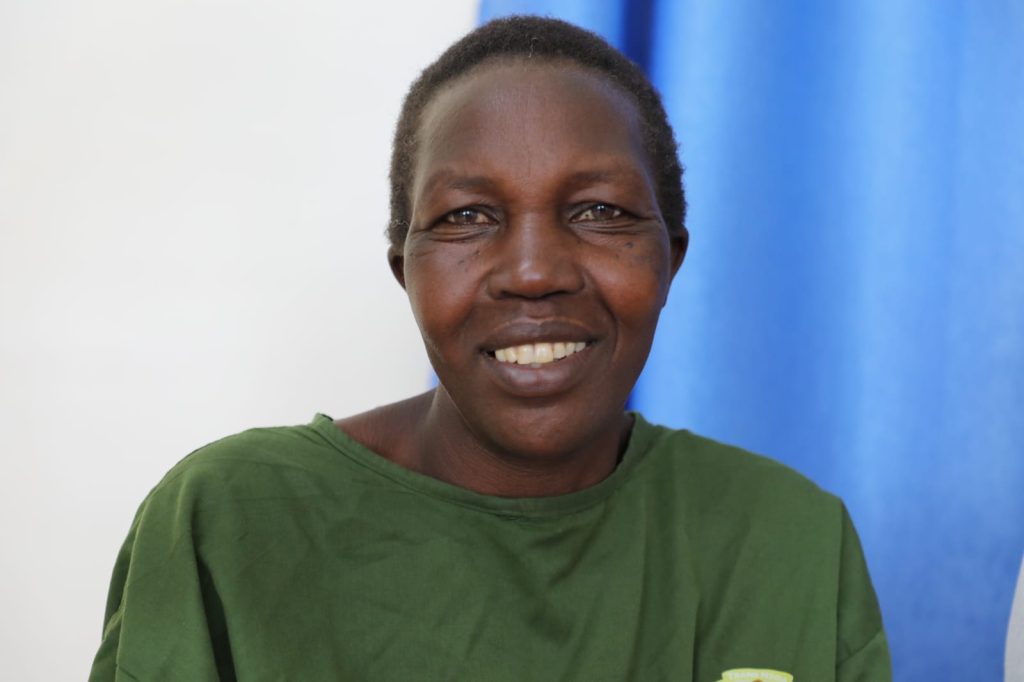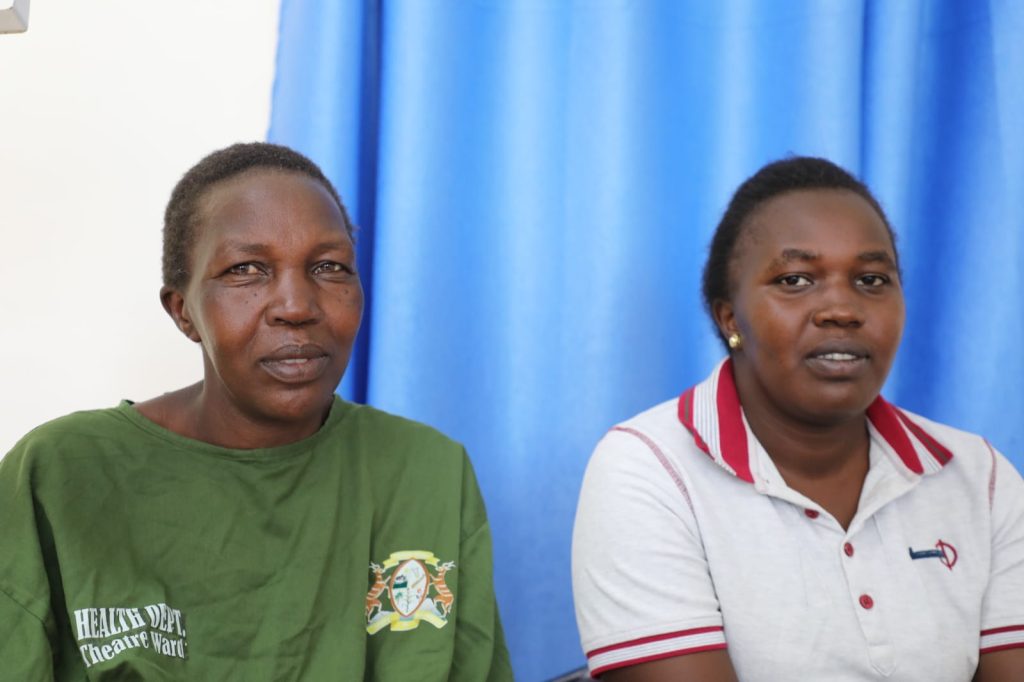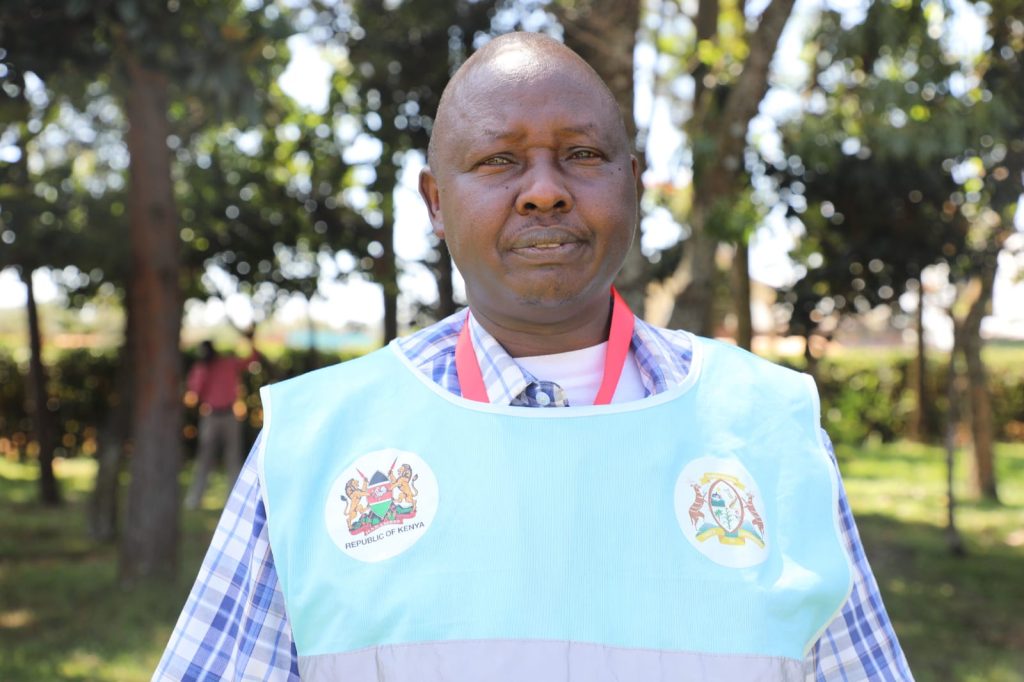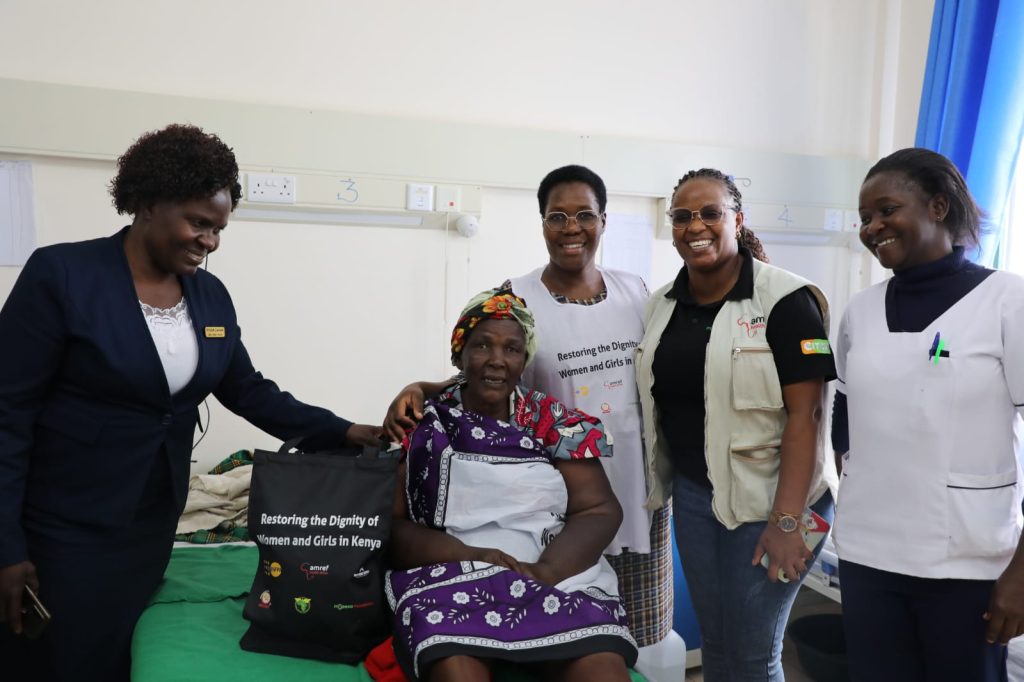Eight beds, eight women, all waiting for their turn to be called into the operating room. The air in the Wamalwa Kijana Referral Hospital holding ward in Kitale, Trans Nzoia County, is thick with anticipation. Crisp, thinning sheets that appear to have been washed countless times cover the beds. The polystyrene tiles and white ceiling provide a stark contrast to the heaviness of their wait. Every door creak catches their collective attention; each new entry brings hope and a reminder that their turn is near.
On each bedside table rests a 2-litre bottle of water, essential for recovery. Doctors have instructed the women to drink at least 10 litres during their stay to aid in flushing out toxins. When the food cart arrives, only those cleared by the doctors to drink tea bring their cups forward. Others glance wistfully before sinking back onto their thin pillows, enduring yet another moment of waiting.
These women, including Caroline, are here to treat obstetric fistula—a preventable childbirth injury that results in uncontrollable urine or stool leakage. This condition brings physical pain, infections, and social stigma, often alienating women from their families and communities.
Caroline’s Story of Hope and Perseverance
Caroline, a 56-year-old mother of seven, lies on her bed, her gaze fixed on the ceiling, hoping to reclaim her future. Her condition, she believes, traces back to a rainy night in 1999 when she delivered her first daughter at home with the help of a Traditional Birth Attendant (TBA). Roads were impassable due to heavy rains, leaving hospital delivery out of reach. That night marked the start of years of home birth deliveries.


Following her first successful home delivery, Caroline never saw the need for antenatal care (ANC) or hospital deliveries. “In my Sabaoti community, TBAs have always been trusted and the practice has been passed down carefully through apprenticeship,” she explains. However, the absence of skilled care during childbirth led to severe tears, leaving her vulnerable to complications.
Earlier this year, Caroline noticed she couldn’t control her stool. At first, she thought eating smaller portions might solve the problem, but it persisted, forcing her into social isolation. “I carried extra clothes everywhere because I feared embarrassing myself,” she shares.
Caroline is now hopeful. The pending surgery symbolizes a chance to rebuild her life and confidence. “Fistula deconstructs your self-esteem. It fills you with shame. Being in a room with other women who share my condition is uplifting—it reminds me I’m not alone.”
Contribution of CHPs in Fistula Eradication
Amref Health Africa caught up with Patrick in Endebess Sub-county, where he resides and tirelessly serves as a CHP. Patrick’s journey in community health stretches back to when CHPs were referred to as community health workers (CHWs). His dedication reflects the broader contribution of CHPs in bridging the gap between communities and healthcare services.

“A week before the camp, CHPs from various Community Health Units attended a one-day sensitization workshop on fistula. We were trained on the causes, symptoms, and impact of fistula, as well as our roles in creating awareness and referring women for treatment,” Patrick explains.
With this knowledge, Patrick went door-to-door, visiting households to educate women about fistula and the available treatment. He and his counterparts also took their message to local churches, speaking to congregants about the condition and the upcoming camp. Through their efforts, Patrick successfully referred three women, including Caroline, who were later admitted to Wamalwa Kijana Referral Hospital for treatment.
CHPs like Patrick are instrumental in Kenya’s fight against fistula. They serve as the first point of contact in communities, identifying women suffering in silence, raising awareness, and breaking the stigma that prevents many from seeking help.
Patrick highlights the significance of their role but also points out the challenges. “Fistula is a condition filled with shame for many women. They feel stigmatized and isolated. Some have even been abandoned by their husbands. The one-day sensitization we received was helpful, but it should be more in-depth to better equip us to address the emotional and cultural barriers women face.” He concludes.
The Bigger Picture: Fistula in Kenya
Obstetric fistula affects an estimated 3,000 women annually in Kenya, with rural areas disproportionately affected. Lack of access to skilled birth attendants and emergency obstetric care contributes to these numbers. Only about 7.6% of women in Kenya deliver at home under skilled supervision, leaving many at risk of injuries like fistula.
For decades, Amref Health Africa has continued to play a pivotal role in combating fistula through awareness campaigns, community mobilization, and surgical interventions. Collaborations with partners like Beyond Zero, UNFPA, and FDSA have enabled the organization to provide free fistula camps, train healthcare workers, and advocate for better maternal health policies.
During the recent camp in Trans Nzoia County with support from UNFPA, 22 women received free surgeries, marking another milestone in the journey to eliminate fistula. Beyond the surgeries, Amref works to address the root causes of fistula by promoting ANC visits and skilled deliveries for all women advocating for reduced maternal and neonatal deaths through the MNH Big Bet.

Figure 2: Presentation of dignity bags by partners and the county government to the women at the camp.
A Call to Action
Caroline’s story emphasizes the importance of timely maternal healthcare. “I want women to know that fistula has a cure. Don’t let stigma hold you back,” she urges. Now an advocate for ANC visits and hospital deliveries, she vows to ensure her daughters never face the same fate.
Through continued collaboration and sustained funding, the hope is to eradicate fistula in Kenya entirely. As Caroline prepares for her surgery, her words reflect the resilience of thousands of women like her: “This surgery is my restoration—a chance to live without shame.”
